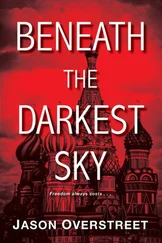Paul Bowles - The Sheltering Sky
Здесь есть возможность читать онлайн «Paul Bowles - The Sheltering Sky» весь текст электронной книги совершенно бесплатно (целиком полную версию без сокращений). В некоторых случаях можно слушать аудио, скачать через торрент в формате fb2 и присутствует краткое содержание. ISBN: , Издательство: Ecco, Жанр: Современная проза, на английском языке. Описание произведения, (предисловие) а так же отзывы посетителей доступны на портале библиотеки ЛибКат.
- Название:The Sheltering Sky
- Автор:
- Издательство:Ecco
- Жанр:
- Год:неизвестен
- ISBN:978-0060199166
- Рейтинг книги:5 / 5. Голосов: 1
-
Избранное:Добавить в избранное
- Отзывы:
-
Ваша оценка:
- 100
- 1
- 2
- 3
- 4
- 5
The Sheltering Sky: краткое содержание, описание и аннотация
Предлагаем к чтению аннотацию, описание, краткое содержание или предисловие (зависит от того, что написал сам автор книги «The Sheltering Sky»). Если вы не нашли необходимую информацию о книге — напишите в комментариях, мы постараемся отыскать её.
, the most famous of Bowles’ books, which is about three young Americans of the postwar generation who go on a walkabout into Northern Africa’s own arid heart of darkness. In the process, the veneer of their lives is peeled back under the author’s psychological inquiry.
The Sheltering Sky — читать онлайн бесплатно полную книгу (весь текст) целиком
Ниже представлен текст книги, разбитый по страницам. Система сохранения места последней прочитанной страницы, позволяет с удобством читать онлайн бесплатно книгу «The Sheltering Sky», без необходимости каждый раз заново искать на чём Вы остановились. Поставьте закладку, и сможете в любой момент перейти на страницу, на которой закончили чтение.
Интервал:
Закладка:
“My wife wants to know if you like noodles,” said Daoud Zozeph.
“Yes, of course,” she answered, trying to look into the peeling mirror over the washstand. She could see nothing at all.
“Bien. You know, my wife speaks no French.”
“Really. You will have to be my interpreter.”
There was a dull knocking, out in the shop. Daoud Zozeph excused himself and crossed the court. She shut the door, found there was no key, stood there waiting. It would have been so easy for one of the guards at the fort to follow her. But she doubted that they had thought of it in time. She sat down on the outrageous bed and stared at the wall opposite. The lamp sent up a column of acrid smoke.
The evening meal at Daoud Zozeph’s was unbelievably bad. She forced down the amorphous lumps of dough fried in deep fat and served cold, the pieces of cartilaginous meat, and the soggy bread, murmuring vague compliments which were warmly received, but which led her hosts to press more of the food upon her. Several times during the meal she glanced at her watch. Tunner would be waiting in the public garden now, and when he left there he would go up to the fort. At that moment the trouble would begin; Daoud Zozeph could not help hearing of it tomorrow from his customers.
Madame Daoud Zozeph gestured vigorously for Kit to continue eating; her bright eyes were fixed on her guest’s plate. Kit looked across at her and smiled.
“Tell madame that because I am a little upset now I am not very hungry,” she said to Daoud Zozeph, “but that I should like to have something in my room to eat later. Some bread would be perfect.”
“But of course. Of course,” he said.
When she had gone to her room, Madame Daoud Zozeph brought her a plate piled high with pieces of bread. She thanked her and said good night, but her hostess was not inclined to leave, making it clear that she was interested in seeing the interior of the traveling case. Kit was determined not to open it in front of her; the thousand-franc notes would quickly become a legend in Sba. She pretended not to understand, patted the case, nodded and laughed. Then she turned again toward the plate of bread and repeated her thanks. But Madame Daoud Zozeph’s eyes did not leave the valise. There was a screeching and fluttering of wings outside in the court. Daoud Zozeph appeared carrying a fat hen, which he set down in the middle of the floor.
“Against the vermin,” he explained, pointing at the hen.
“Vermin?” echoed Kit.
“If a scorpion shows its head anywhere along the floor— tac! She eats it!”
“Ah!” She fabricated a yawn.
“I know madame is nervous. With our friend here she will feel better.”
“This evening,” she said, “I am so sleepy that nothing could make me nervous.”
They shook hands solemnly, Daoud Zozeph pushed his wife out of the room and shut the door. The hen scratched a minute in the dust, then scrambled up onto the rung of the washstand and remained motionless. Kit sat on the bed looking into the uneven flame of the lamp; the room was full of its smoke. She felt no anxiety—only an overwhelming impatience to put all this ludicrous décor behind her, out of her consciousness. Rising, she stood with her ear against the door. She heard the sound of voices, now and then a distant thud. She put on her coat, filled the pockets with pieces of bread, and sat down again to wait.
From time to time she sighed deeply. Once she got up to turn down the wick of the lamp. When her watch said ten o’clock, she went again to the door and listened. She opened it: the court glowed with reflected moonlight. Stepping back inside, she picked up Tunner’s burnous and flung it under the bed. The resultant swirl of dust almost made her sneeze. She took her handbag and the valise and went out, taking care to shut the door after her. On her way through the inner room of the shop she stumbled over something and nearly lost her balance. Going more slowly, she moved ahead into the shop, around the end of the counter, feeling lightly along its top with the fingers of her left hand as she went. The door had a simple bolt which she drew back with difficulty; eventually it made a heavy metallic noise. Quickly she swung the door open and went out.
The light of the moon was violent-walking along the white street in it was like being in the sunlight. “Anyone could see me.” But there was no one. She walked straight to the edge of town, where the oasis straggled over into the courtyards of the houses. Below, in the wide black mass formed by the tops of the palms, the drums were still going. The sound came from the direction of the ksar, the Negro village in the middle of the oasis.
She turned into a long, straight alley bordered by high walls. On the other side of them the palms rustled and the running water gurgled. Occasionally there was a white pile of dried palm branches stacked against the wall; each time she thought it was a man sitting in the moonlight. The alley swerved toward the sound of the drums, and she came out upon a square, full of little channels and aqueducts running paradoxically in all directions; it looked like a very complex toy railway. Several walks led off into the oasis from here. She chose the narrowest, which she thought might skirt the ksar rather than lead to it, and went on ahead between the walls. The path turned this way and that.
The sound of the drums was louder: now she could hear voices repeating a rhythmical refrain, always the same. They were men’s voices, and there seemed to be a great many of them. Sometimes, when she reached the heavy shadows, she stopped and listened, an inscrutable smile on her lips.
The little bag was growing heavy. More and more frequently she shifted it from one hand to the other. But she did not want to stop and rest. At each instant she was ready to turn around and go back to look for another alley, in case she should come out all at once from between the walls into the middle of the ksar. The music seemed quite nearby at times, but it was hard to tell with all the twisting walls and trees in between. Occasionally it sounded almost at hand, as if only a wall and a few hundred feet of garden separated her from it, and then it retreated into the distance and was nearly covered by the dry sound of the wind blowing through the palm leaves.
And the liquid sound of the rivulets on all sides had their effect without her knowing it: she suddenly felt dry. The cool moonlight and the softly moving shadows through which she passed did much to dispel the sensation, but it seemed to her that she would be completely content only if she could have water all around her. All at once she was looking through a wide break in the wall into a garden; the graceful palm trunks rose high into the air from the sides of a wide pool. She stood staring at the calm dark surface of water; straightway she found it impossible to know whether she had thought of bathing just before or just after seeing the pool. Whichever it was, there was the pool. She reached through the aperture in the crumbling wall and set down her bag before climbing across the pile of dirt that lay in her way. Once in the garden she found herself pulling off her clothes. She felt a vague surprise that her actions should go on so far ahead of her consciousness of them. Every movement she made seemed the perfect expression of lightness and grace. “Look out,” said a part of her, “Go carefully.” But it was the same part of her that sent out the warning when she was drinking too much. At this point it was meaningless. “Habit,” she thought. “Whenever I’m about to be happy I hang on instead of letting go.” She kicked off her sandals and stood naked in the shadows. She felt a strange intensity being born within her. As she looked about the quiet garden she had the impression that for the first time since her childhood she was seeing objects clearly. Life was suddenly there, she was in it, not looking through the window at it. The dignity that came from feeling a part of its power and grandeur, that was a familiar sensation, but it was years ago that she had last known it. She stepped out into the moonlight and waded slowly toward the center of the pool. Its floor was slippery with clay; in the middle the water came to her waist. As she immersed herself completely, the thought came to her: “I shall never be hysterical again.” That kind of tension, that degree of caring about herself, she felt she would never attain them any more in her life.
Читать дальшеИнтервал:
Закладка:
Похожие книги на «The Sheltering Sky»
Представляем Вашему вниманию похожие книги на «The Sheltering Sky» списком для выбора. Мы отобрали схожую по названию и смыслу литературу в надежде предоставить читателям больше вариантов отыскать новые, интересные, ещё непрочитанные произведения.
Обсуждение, отзывы о книге «The Sheltering Sky» и просто собственные мнения читателей. Оставьте ваши комментарии, напишите, что Вы думаете о произведении, его смысле или главных героях. Укажите что конкретно понравилось, а что нет, и почему Вы так считаете.











